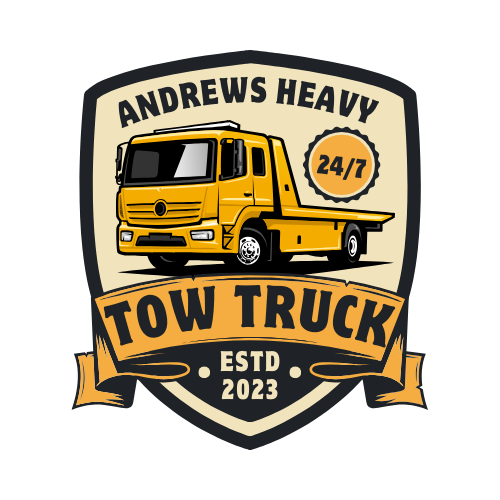Heavy Equipment Towing: What You Need to Know
GET A FREE QUOTE TODAY!
Recent post

Reliable Motorcycle Towing Services
Reliable Motorcycle Towing Services call us now GET A FREE QUOTE TODAY! Fill out this form and we will contact you with a free estimate.

Fast Mobile Truck Repair Services
Fast Mobile Truck Repair Services call us now GET A FREE QUOTE TODAY! Fill out this form and we will contact you with a free

Heavy Vehicle Towing Experts Near You
Heavy Vehicle Towing Experts Near You call us now GET A FREE QUOTE TODAY! Fill out this form and we will contact you with a

Heavy Haul Towing: The Ultimate Guide
Heavy Haul Towing: The Ultimate Guide call us now GET A FREE QUOTE TODAY! Fill out this form and we will contact you with a

Heavy Equipment Towing: What You Need to Know
Heavy Equipment Towing: What You Need to Know call us now GET A FREE QUOTE TODAY! Fill out this form and we will contact you
Services
- Semi Truck Towing
- RV Towing Service
- Box Truck Towing
- Light Duty Towing Service
Contact Info
When it comes to heavy equipment towing, there are a lot of factors that come into play. From understanding the different methods of towing to calculating the necessary towing capacity, it can be overwhelming for those who are not familiar with the process. In this blog post, we will delve deep into all aspects of heavy-duty towing and aim to clear any misconceptions that you might have heard. We will also explain how to identify vehicles that need heavy-duty towing and what you should consider when choosing a certified and insured towing service. So, whether you are a business owner or an individual looking for heavy equipment towing solutions, this blog post is a must-read for you!
The Evolution of Heavy Equipment Towing
Over time, the towing industry has made significant progress in handling heavy equipment. Nowadays, advanced solutions and techniques are employed to efficiently tow heavy machinery. Towing companies have invested in specialized equipment that can safely handle the immense weight of heavy loads. These advancements have made heavy-duty towing more reliable and efficient than ever before. Moreover, modern towing methods prioritize the utmost care and safety of the heavy equipment being transported. Load shifts, which can cause significant damage to both the equipment and other vehicles on the road, are now minimized through improved towing practices. This evolution in heavy equipment towing has brought peace of mind to business owners who rely on the timely delivery of their valuable equipment, such as excavators and forklifts, to job sites or repair shops.
From Basic Methods to Advanced Solutions
Basic towing methods have advanced significantly over time, giving rise to more sophisticated solutions for heavy equipment towing. Advanced techniques like winching and load shifting are now commonly employed to tackle the unique challenges posed by hauling heavy machinery. Towing companies have also stepped up their game, investing in specialized tow trucks that are specifically designed for the task of moving heavy loads. Additionally, the use of outriggers and other specialized equipment has become necessary to ensure the safe and secure towing of these hefty pieces of equipment. Decades of experience in the industry have led to the development of improved methods for transporting heavy equipment, allowing business owners and operators to have their machinery moved in a timely manner, minimizing downtime and maximizing efficiency.
Understanding Key Aspects of Heavy Duty Towing
Heavy duty towing requires specialized equipment and expertise. Towing companies must calculate towing capacity to ensure safe transportation. Different types of vehicles may require different heavy duty towing techniques. Professional tow truck operators are trained to handle heavy loads. Towing companies have fast response times to minimize downtime for businesses. When it comes to heavy duty towing, it is crucial to have the right tools and knowledge. With the help of advanced equipment and skilled operators, towing companies can efficiently and safely transport heavy loads. Whether it’s a tractor trailer, excavator, or forklift, these professionals can handle any piece of heavy equipment with ease. They understand the importance of calculating towing capacity and using the appropriate towing techniques for each vehicle. Business owners can rely on their expertise to get their equipment to the designated repair shop in a timely manner, minimizing any delays or disruptions. Heavy duty towing is not just about moving heavy loads; it’s about doing it in a way that ensures the safety of the load, the operators, and other road users.
Calculating Towing Capacity: An Essential Step
Determining towing capacity is essential for ensuring safe heavy-duty towing. Towing companies take into account factors such as weight, size, and balance to accurately calculate towing capacity. Properly calculating towing capacity helps prevent damage to both the towing vehicle and the equipment being towed. Advanced tools and technology are used by towing companies to ensure accurate calculations. Dispatchers with experience ensure that the appropriate tow truck is dispatched for the job. By calculating towing capacity correctly, towing companies can perform their services in a timely manner, allowing businesses to minimize downtime and keep their operations running smoothly. Load shifts can be avoided, and the piece of heavy equipment, whether it’s an excavator or a forklift, can be transported safely to the repair shop or its destination.
Identifying Vehicles That Need Heavy Duty Towing
Certain vehicles, such as semi-trucks, tractors, and construction equipment, often require heavy-duty towing due to their size or weight. Additionally, RVs and trailers may also need specialized tow trucks for transportation. It is important to use tow trucks with the capacity to handle heavy loads when towing these vehicles. Towing companies have the expertise to identify which vehicles require heavy-duty towing. They understand the importance of avoiding load shifts and ensuring that the towing process is done in a timely manner. By using their knowledge and experience, towing companies ensure that each piece of heavy equipment, whether it be an excavator or a forklift, is transported safely and securely. Business owners can rely on towing services to take care of their heavy-duty towing needs, providing peace of mind knowing that their valuable assets are in capable hands.
Common Misconceptions about Heavy Equipment Towing
Despite common misconceptions, not all tow trucks are capable of handling heavy equipment. Heavy duty towing requires specialized tow trucks and equipment that can safely transport heavy loads. This is something many people fail to understand. It is crucial to choose a towing company with experience and expertise in heavy equipment towing. They have the knowledge and experience to handle the unique challenges that come with hauling heavy machinery. Load shifts and balance are important factors to consider when towing a piece of heavy equipment like an excavator or forklift. Professional towing services understand how to properly secure the load and prevent any potential damage. Business owners should rely on certified and insured towing services that prioritize safety and have the necessary equipment for heavy-duty towing. Partnering with a reputable towing company ensures that heavy equipment is transported in a timely manner and reaches the repair shop safely.
How Much Weight Can a Heavy-Duty Tow Truck Handle?
Heavy-duty tow trucks are designed to handle immense weight, depending on factors like their specifications and design. Equipped with winches, they can handle heavier loads. Towing companies ensure the right truck is used for each job, ensuring safety and efficiency.
The Importance of Certified and Insured Towing Services
Certified and insured towing services provide peace of mind to customers. When hiring a towing service, it is crucial to choose one that is certified and insured. A certified towing company has met industry standards for professionalism and expertise. This means that they have the necessary training and qualifications to handle heavy equipment towing. Additionally, insurance coverage is essential for both the towing company and the client. In case of accidents or damage during the towing process, insurance protects both parties from financial liabilities. Certified towing services also prioritize safety. They have trained tow truck operators who understand the proper protocols and procedures for handling heavy equipment. By hiring a certified and insured towing service, you can ensure reliable and high-quality assistance in a timely manner.
Ensuring Safety and Trust in Towing Services
Towing companies prioritize safety when providing their services. Certified tow truck operators adhere to strict safety protocols during towing operations. They take measures to secure the load and prevent accidents during transportation. Trustworthy towing services have a track record of delivering vehicles and equipment safely. Customers can rely on certified towing services for timely and secure vehicle recovery. Ensuring safety and trust is essential in the towing industry to maintain a positive reputation. Business owners, who depend on their heavy equipment for operations, need reliable and trustworthy towing services for peace of mind. When a piece of heavy equipment, such as an excavator or forklift, needs to be transported to a repair shop or another location, it’s crucial to hire a towing service that can handle heavy-duty towing and ensure the load is secured and delivered in a timely manner.
What Should You Consider when Choosing a Towing Service?
When choosing a towing service, consider their experience in handling heavy equipment. Look for a company with a fleet of heavy-duty tow trucks and specialized equipment. Reliable service and fast response times are crucial. Make sure the towing service is certified and insured. Read customer reviews to gauge their reliability and professionalism.
Conclusion
In conclusion, when it comes to heavy equipment towing, it is crucial to have a thorough understanding of the process and the necessary precautions to ensure a safe and efficient operation. From the evolution of towing methods to calculating towing capacity and identifying vehicles that require heavy-duty towing, every aspect plays a significant role in the successful completion of the task. It is also important to debunk common misconceptions surrounding heavy equipment towing, such as the weight limits of tow trucks. Additionally, always prioritize certified and insured towing services to guarantee safety and trust. When choosing a towing service, consider their expertise, reputation, and availability to ensure a seamless towing experience.
